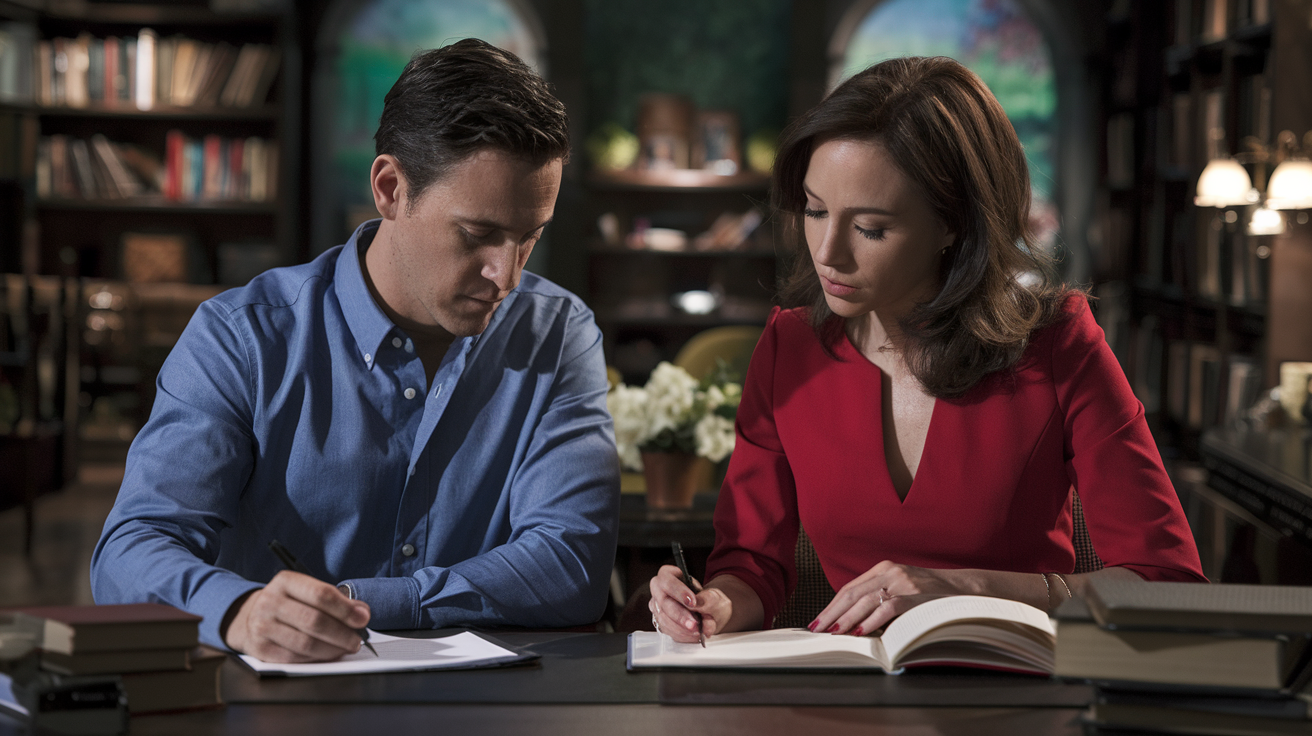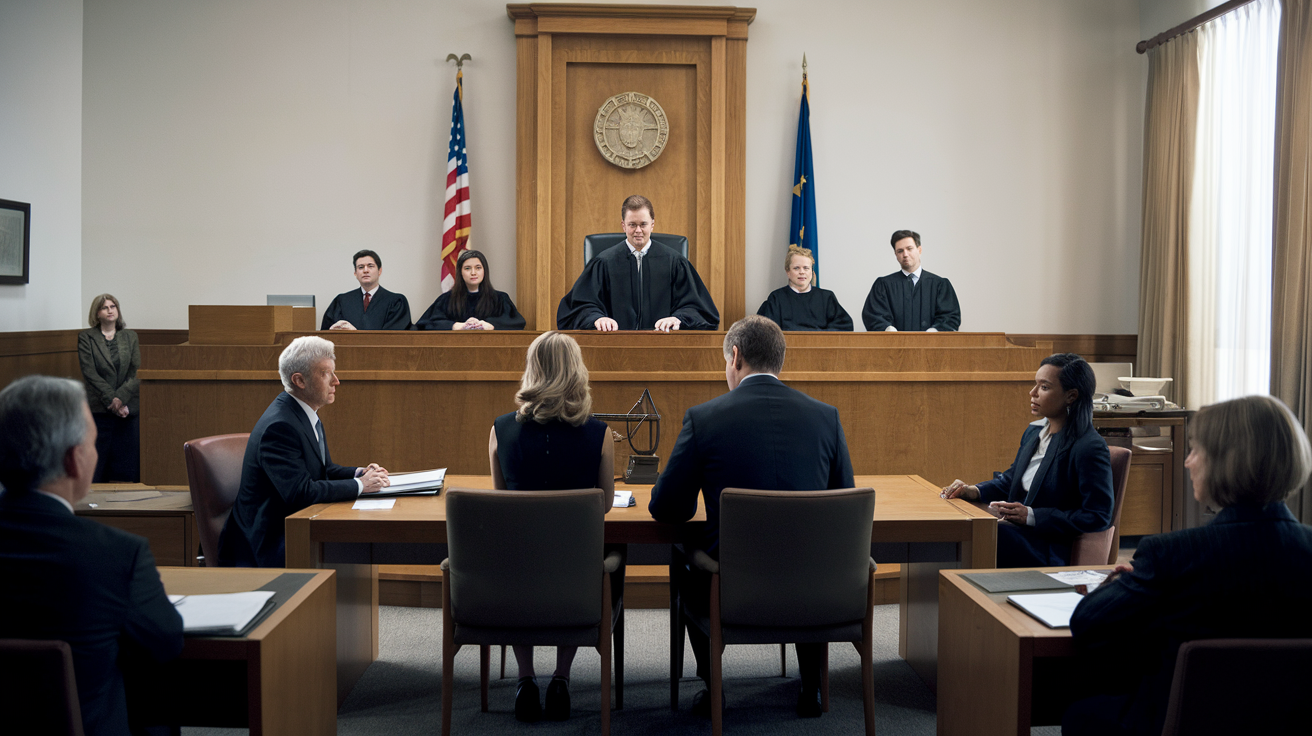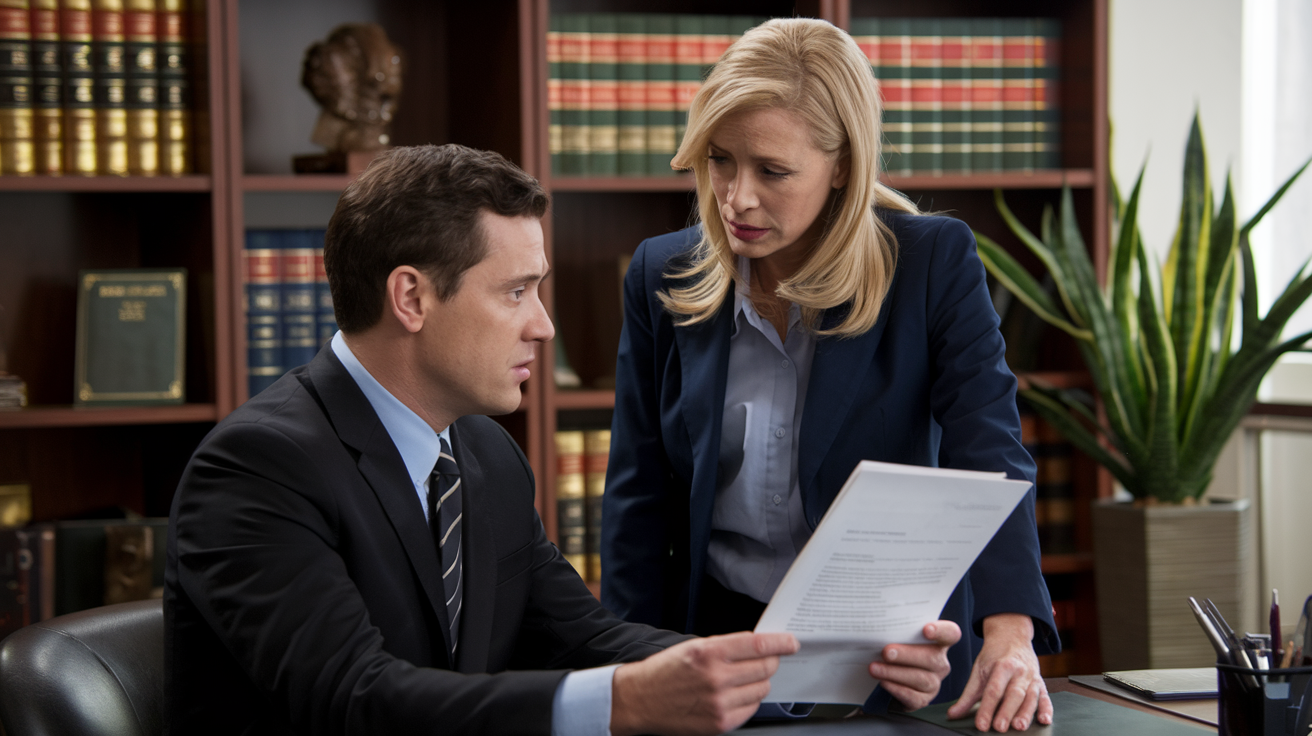Getting divorced without conflict sounds like a good choice, but finding the right attorney can feel overwhelming.
Many people struggle to pick a legal expert who fits their needs and budget. With so many law firms offering similar services, making the final choice becomes difficult.
A skilled, uncontested divorce attorney can make the process smoother and less stressful. They help handle paperwork correctly and ensure all legal requirements are met on time.
This guide outlines five practical steps to help you select an uncontested divorce attorney that matches your situation.
You will learn what questions to ask, which qualities matter most, and how to evaluate their experience and fees.
What is an Uncontested Divorce
An uncontested divorce happens when both spouses agree on all terms of ending their marriage. This includes how to split assets, handle debts, and arrange child custody if they have children.
The main benefit of this type of divorce is that it saves time and money. Since both parties agree on everything beforehand, there’s no need for long court battles or multiple hearings.
Filing for an uncontested divorce costs less because you spend fewer hours with your attorney. You also avoid extra court fees and expenses that come with fighting over issues in court.
The stress levels stay lower, too. When spouses work together to reach agreements, they often maintain better relationships afterward.
This becomes especially important when children are involved, as parents need to communicate about their kids in the future.
However, this option works best when both people can talk calmly and compromise. They must also trust each other to share honest information about money and property.
Choosing the Best Uncontested Divorce Attorney

Choosing the right uncontested divorce attorney can make the process smoother and less stressful. Follow these steps to find the best attorney for your needs.
1. Look for Experience in Uncontested Cases
Pick an attorney who handles many uncontested divorces. Their focus on these cases means they know the fastest ways to complete paperwork and avoid delays.
Someone with plenty of uncontested case experience understands common issues that might come up.
A skilled attorney saves you time by having ready-made checklists and forms. They guide you through each step without missing important details that could slow down your divorce.
2. Check Reviews and References
Read what past clients say about working with the attorney. Focus on reviews that talk about uncontested divorces similar to your situation.
Ask the attorney for references from previous clients. Speaking directly with former clients gives you honest feedback about how the attorney handles cases and communicates.
Look for patterns in the feedback about meeting deadlines and being responsive. Good attorneys answer calls promptly and keep clients updated about their case progress.
3. Evaluate Communication Style
Meet with the attorney to see how well they explain legal terms in plain language. They should make complex divorce laws easy to understand.
Notice if they listen carefully to your questions and give clear answers. A good attorney takes time to address your concerns without rushing through meetings.
Pay attention to how their office staff treats you. Everyone on the team should be helpful and professional since you’ll work with them, too.
4. Compare Fee Structures
Ask for a clear breakdown of all costs involved in your uncontested divorce. Good attorneys provide written fee agreements that explain every charge.
Find out if they charge flat fees or by the hour. Flat fees often work better for uncontested divorces because you know the total upfront cost.
Make sure you understand what services are included and what might cost extra. Hidden fees can surprise you later if everything isn’t spelled out.
5. Consider Office Location and Availability
Choose an attorney whose office you can reach easily. This matters for signing papers and attending necessary meetings.
Check their working hours and how quickly they usually respond to clients. You want someone available when you need help or have questions.
Find out who handles your case when the attorney is away. There should be a backup plan, so your divorce doesn’t get delayed.
Benefits of Hiring an Attorney

Hiring an attorney for an uncontested divorce ensures that the process is smooth and legally sound. They handle the paperwork, protect your rights, and save time and stress.
Let’s break down each benefit in simple terms for your uncontested divorce:
Legal Document Preparation
- Attorneys fill out court forms correctly, avoiding delays from mistakes.
- They ensure paperwork meets local court rules and formatting.
- Attorneys catch missing details before filing to prevent rejections.
Protection of Your Rights
- Attorneys review agreements to protect your legal rights.
- They ensure property division is fair and complies with state laws.
- You get advice on rights you may not be aware of, like pension benefits or insurance.
Time and Stress Management
- Attorneys handle filing deadlines and court procedures for you.
- They know which forms to file and when to keep things on track.
- You save time by avoiding courthouse visits and long waits.
Cost-Effective Process
- A well-handled divorce avoids costly mistakes that may need fixing later.
- Attorneys help prevent long, drawn-out court proceedings.
- Clear fees let you know costs upfront, making budgeting easier.
Future Security
- Attorneys ensure agreements are legally binding and enforceable.
- They include provisions for future changes in circumstances.
- Well-prepared agreements hold up better in court if problems arise.
Expert Guidance
- Attorneys provide answers to legal questions throughout the process.
- They explain how today’s decisions may affect you later.
- They offer options you may not have considered to solve problems.
Process of an Uncontested Divorce

An uncontested divorce is a smoother and simpler way to end a marriage when both spouses agree on the important issues. Here’s what to expect during the process.
Step 1: Agree on the Terms
The first step is for both spouses to agree on everything—property division, handling debts, and child custody.
This can be done through discussion or with the help of your attorneys. It’s all about finding common ground and making sure you both are on the same page.
Step 2: Prepare the Paperwork
Once you’ve agreed on the terms, your attorney will prepare the divorce petition.
This is a formal document that outlines the details of your marriage and what you’re asking the court to approve. Your attorney will make sure everything is in order.
Step 3: File the Documents
Next, your attorney will file the divorce papers at the courthouse. The court will assign a case number, and your spouse will be notified.
There’s usually a short waiting period before moving forward, but the court handles the details.
Step 4: Share Financial Information
To make sure everything is fair, both spouses need to disclose their financial details. This includes things like bank statements, tax returns, and property lists.
Your attorney will help organize this information and make sure it’s in the proper format for the court.
Step 5: Create a Settlement Agreement
Once everything is sorted, a settlement agreement is drafted. This document outlines how you’ll divide everything, from property and debts to custody arrangements.
Both spouses will review and sign the agreement, ensuring that it reflects their understanding.
Step 6: Court Review
The judge will review the divorce paperwork and the settlement agreement. If everything looks good and meets legal requirements, the judge will sign the final divorce decree.
At this point, the divorce is nearly complete.
Step 7: Final Steps
After the judge signs the decree, your attorney will provide you with copies of the final documents.
You’ll want to keep the divorce decree safe, as you may need it for future matters like changing your name or filing taxes.
Your attorney will be available for any questions you might have moving forward.
Understand the Cost of Hiring an Attorney
| Cost Factor | Typical Range | What’s Included | Extra Costs to Consider |
|---|---|---|---|
| Flat Fee Package | $800 – $2,500 | Basic document preparation, Initial consultation, Court filing, Final review of papers | Additional document changes, Extra court appearances, Notary fees |
| Hourly Rate | $150 – $400 per hour | Time spent on your case, Phone calls and emails, Document preparation, Court appearances | Minimum billing increments, Travel time, and Administrative costs |
| Filing Fees | $200 – $500 | Court processing fees, Document filing, Case number assignment | Rush processing, Additional copies, Certification fees |
| Additional Services | Varies | Property appraisals, Financial Planning, Name change process | Expert consultations, Document courier fees, and Special filing requests |
| Payment Options | — | Payment plans, Credit cards, One-time payment | Interest on payment plans, Processing fees, and Late payment charges |
Important Notes:
- Costs vary by location and case complexity
- Some attorneys offer free initial consultations
- Ask for a written fee agreement that lists all possible charges
- Many attorneys provide package deals for simple, uncontested divorces
- Compare prices, but don’t pick solely based on the lowest cost
Questions to Ask During Your Consultation

Here is a helpful list of essential questions for your potential attorney during the first meeting, which gives you clarity for choosing the best attorney for your consultation.
About Experience and Expertise
Begin by understanding the attorney’s level of experience and specialization.
- How many uncontested divorces do you handle each month?
- How long have you worked with divorce cases in this county?
- What percentage of your practice focuses on uncontested divorces?
- Have you handled cases similar to mine?
About Process and Timeline
Understanding the roadmap helps set realistic expectations.
- How long does an uncontested divorce typically take?
- What steps are involved in my specific case?
- Who in your office will work on my case?
- How do you keep clients updated about their case status?
About Costs and Fees
Clear information on money avoids surprises down the line.
- What is your fee structure for uncontested divorces?
- Are there any extra costs I should know about?
- Do you offer payment plans?
- What payment methods do you accept?
- What happens if my case becomes contested later?
About Communication
Good communication ensures you never feel left in the dark.
- How quickly do you respond to client questions?
- What’s the best way to reach you?
- Will I work directly with you or with other staff members?
- How often will I receive updates about my case?
About Strategy and Approach
Knowing their approach helps you feel confident in their guidance.
- What potential problems do you see in my case?
- How would you handle disagreements if they come up?
- What can I do to help my case move smoothly?
- What documents should I start gathering?
Remember to take notes during the consultation. A good attorney welcomes these questions and gives clear, direct answers.
Conclusion
Choosing the right uncontested divorce attorney makes a big difference in how smoothly your case goes.
A skilled attorney helps you avoid common mistakes and protects your interests throughout the process.
When selecting an attorney, focus on their experience with uncontested cases, clear communication style, and fair fee structure.
Take time during consultations to ask questions and understand how they work.
Remember that investing in good legal help often saves money in the long run by preventing costly errors.
Start your search by making a list of local attorneys who specialize in uncontested divorces, then schedule consultations to find the best fit.
Frequently Asked Questions
How Long does an Uncontested Divorce Usually Take?
An uncontested divorce typically takes 2-6 months. The timeline depends on your state’s waiting period and how quickly you file paperwork.
Do Both Spouses Need Separate Attorneys for An Uncontested Divorce?
No. In an uncontested divorce, one attorney can prepare the paperwork. However, the attorney can only represent one spouse officially.
What Happens if We Disagree After Filing for An Uncontested Divorce?
If disagreements arise, your case becomes contested. You’ll need to either work out differences or switch to a contested divorce process.
Can I Change the Agreement After the Divorce is Final?
Some parts of a divorce decree can change through modification requests. This usually applies to child support and custody arrangements.








